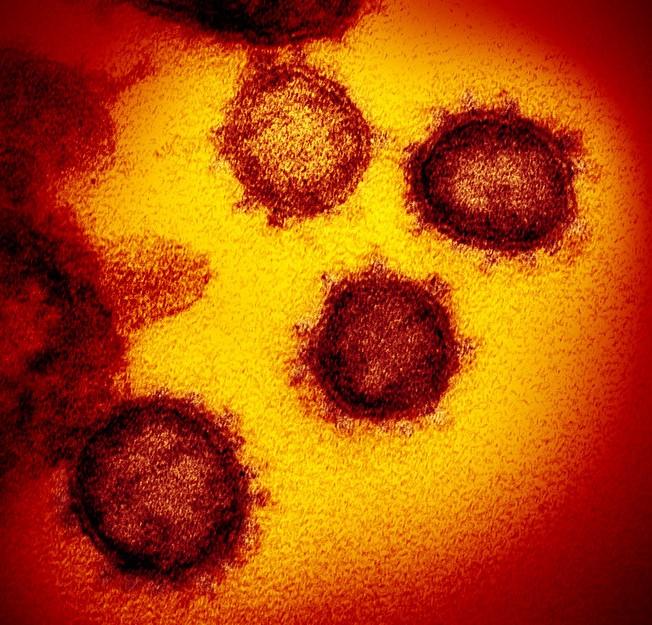Top World Health Organization (WHO) officials today said the agency now classifies the B1617 SARS-CoV-2 variant first detected in India as a variant of concern, following a detailed analysis of early findings by its genetics working group, which said the variant is more transmissible.
In other key global developments, during a Global Citizen's Vax Live concert over the weekend, countries, corporations, and charities raised more than $60 million for the COVAX program to ensure more equitable access to COVID-19 vaccine, while India's massive surge remained at record high levels.
Evidence shows B1617 more transmissible
At a media briefing today, Maria Van Kerkhove, PhD, the WHO's technical lead for COVID-19, said the group's experts have been meeting for the past few days to review as much data as possible about the B1617 variant. She said B1617 has three sublineages. Preliminary analysis suggests that it is more transmissible, part of what led the group to move it from a variant of interest to a variant of concern alongside B117, B1351, and P1.
She said much more work is needed to look at B1617 sequences from India and other countries that have detected it, adding that lab studies to shed light on virus neutralization issues are needed, as well as epidemiologic studies to provide clues on how the variant behaves.
So far, public health measures such as distancing, limiting gatherings, and wearing masks seem to work against B1617, Van Kerkhove said. But with a more transmissible virus, "we have to work that much harder."
Tomorrow in its weekly COVID situation report the WHO will publish more details about the variant and its investigation so far, she said.
Public Health England on May 7 announced that it has reclassified B1617.2 as a variant of concern. Indian officials have said a combination of factors has been driving its second surge, the world's worst of the pandemic. They include social mixing, relaxed measures, and more transmissible variants, which has also included B117, the variant first seen in the United Kingdom.
Tedros: World at unacceptably high plateau
After many weeks of steady rises, the world's COVID cases and deaths show a shift to a plateau, led by declines in the Americas and Europe, two of the hardest-hit regions, Tedros Adhanom Ghebreyesus, PhD, the WHO's director-general, said today at the WHO briefing.
He warned, however, that the world has been in same situation before, only to see cases go up again when populations let down their guard. Tedros added that cases are still rising rapidly in the WHO Southeast Asia region and that there are some countries in every WHO region experiencing increasing trends.
He said the WHO Foundation today launched a "Together for India" appeal to raise funds to support work in India, including for purchases of oxygen, personal protective equipment, and medicines.
Over the weekend, India's cases remained near record levels, with the country reporting more than 400,000 cases on May 8 and about 366,000 cases yesterday.
In other Indian developments, the country is asking former army medics to help care for patients at overwhelmed hospitals and military doctors to do online consultations, according to Reuters.
Meanwhile, doctors in India are reporting an increase in potentially fatal fungal lung infections called mucormycosis in people with COVID or in those who recently recovered, according to the New York Times. Some experts said the cases could be linked to increased use of steroids or from treatment at home, including oxygen, without proper hygiene.
Two of India's neighbors—Nepal and Sri Lanka—today reported record high cases.
$60 million boost for COVAX
A concert event that aired on May 8 called Vax Live, organized by the international advocacy group Global Citizen, raised more than $60 million and other support for COVAX, Gavi, the Vaccine Alliance, announced today. The event featured performances from musical stars and messages from heads of state, including US President Joe Biden, and other well-known leaders, such as Pope Francis.
The United Arab Emirates (UAE) announced that it will donate 1 million COVID vaccine doses and will help distribute 25 million doses through its supply chain. Other countries announcing donations included Croatia, which pledged to share doses with its neighbors, and Canada, which announced more support for the WHO's ACT Accelerator, designed to speed the development and equal distribution of vaccines, drugs, and diagnostic tests.
Several corporations also announced new support, including a $25 million pledge from Mastercard and $5 million from Cisco and Procter & Gamble.
In a statement, Seth Berkley, MD, Gavi's chief executive officer, said the group is grateful for the new pledges from philanthropy and private sector groups, as well as the UAE. "Now we need more countries and organizations to follow their lead and let COVAX deliver to health workers and those at highest risk for COVID-19, so that no single country is left behind," he said, adding that COVAX needs $1.6 billion by June to be fully financed for 2021.
More global headlines
- Other countries in the WHO's Asian region are also reporting steady rises in cases, including Malaysia, which ordered a national lockdown in effect until Jun 7, and Vietnam, a country widely praised for its handling of COVID previously.
- In North Africa, Sudan is battling a third surge and is struggling with oxygen supplies and stretched healthcare capacity, according to Reuters.
- Regarding vaccine policies, Norway's advisory group said the country should exclude the AstraZeneca-Oxford and Johnson & Johnson vaccines from national immunization plans owing to rare blood clotting side effects; however, Germany has opened Johnson & Johnson vaccination to all adults under age 60 as long as people talk to their doctors first.
- The global total today climbed to 158,517,386 cases, and 3,296,584 people have died from their infections, according to the Johns Hopkins online dashboard.














